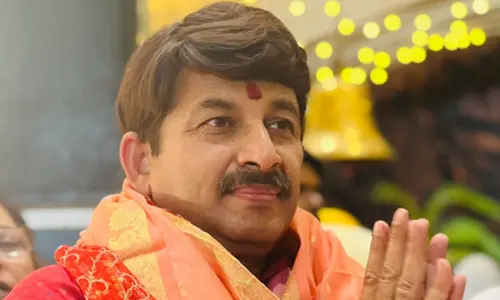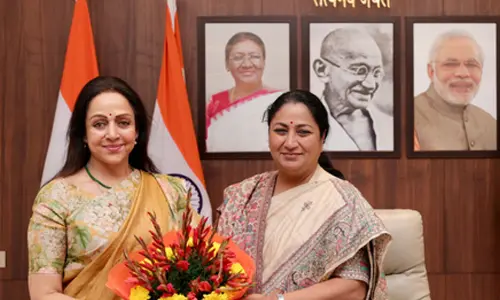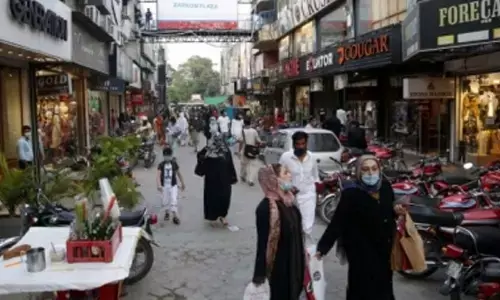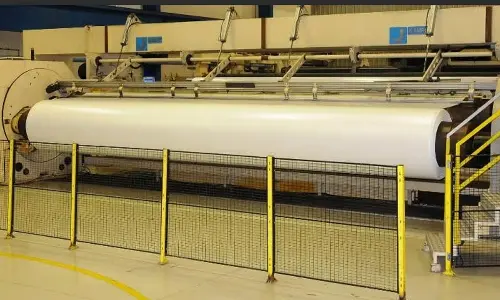The good economics of migration
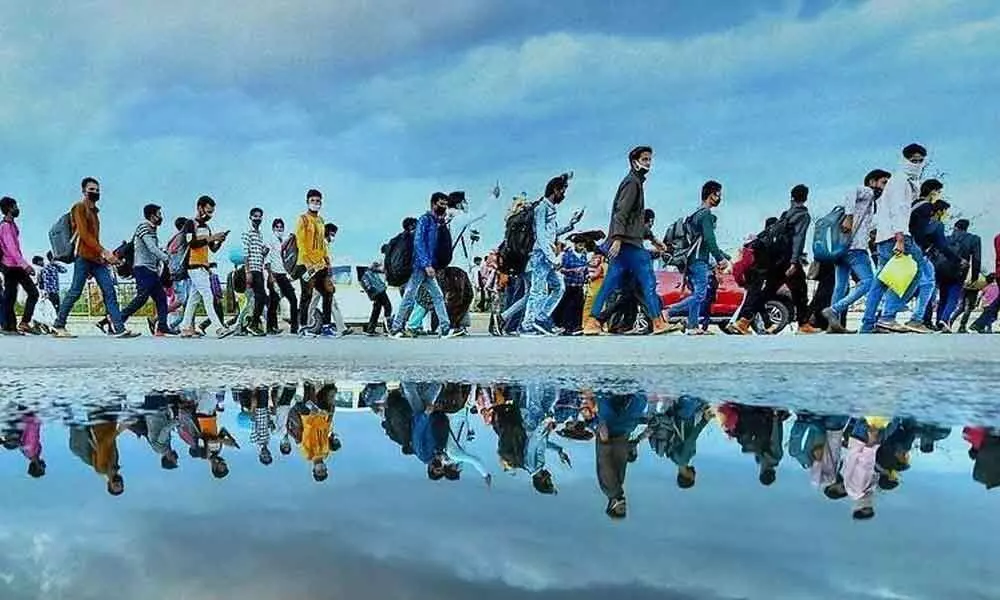
The good economics of migration
Punjab Chief Minister Charanjit Singh Channi has had to withdraw his derogatory comments against migrant labour from Bihar due to opposition from the people of the State.
Punjab Chief Minister Charanjit Singh Channi has had to withdraw his derogatory comments against migrant labour from Bihar due to opposition from the people of the State. Maharashtra Navnirman Sena chief Raj Thackeray has made similar derogatory comments against immigrants and his party, too, has been sidelined by the people of the State. This is not exceptional because migration of labour is beneficial both for the supplier- as well as the host state.
In course of economic growth there arises an imbalance between the endowments of the different States. Some States have more demand for labour whereas others have less and, therefore, migration creates a balance between them just as if one person has more rotis and the other person has more dal then exchange of some rotis and dal between them creates balance for both the persons. In this context, the International Monetary Fund (IMF) has said that migration of both skilled and unskilled labour is beneficial for both the economies.
Most developed countries welcome high-skilled immigrant workers. One requirement for the prized H1B visa in the United States is that the applicants should have certain technical skills that are not easily available within the country. The migration of these highly skilled persons adds to the economic growth of the United States. About one-third of the engineers in National Aeronautics and Space Administration of the United States and frontline technical companies like Microsoft are from in India. Migration of unskilled workers also makes a positive contribution to the host economy.
The IMF has said that the migration of low skilled workers to a developed country relieves the local people for high-skilled work. For example, if an unskilled worker from Mexico migrates to California, then he drives tractor, picks oranges and does other manual work. This releases the high-skilled farmer from having to do these low-skilled works and he can devote his time to doing research on the price in the market, getting better seeds, growing vegetables and so on. Similarly, if an unskilled worker from Bihar migrates to Punjab, then he drives the tractor, harvests the paddy and does other manual work. This releases the high-skilled farmer of Punjab from having to do these low-skilled works and he can devote his time to doing research on the price in the market and so on. Another benefit is that migration of unskilled worker enables the farmers of Punjab to cultivate larger area. The immigrant workers can plough and harvest larger areas than the farmer could himself.
Yet another benefit is that the wages in the host State decline. Presently, the daily wages for an unskilled worker in Manipur are Rs 1,200 per day against Rs 800 in Punjab because the workers from Bihar are less inclined to migrate to Manipur while they are more inclined to migrate to Punjab. Therefore, the wages are relatively low in Punjab. Consequently, the cost of production of goods is also less and the businesses of Punjab can compete in the national market. Thus, the migration of both skilled and unskilled workers is beneficial for the host State and countries.
Migration is equally beneficial for the supplier State or country. The unemployment is reduced. The daily wages in Bihar are today about Rs 400 per day because a large number of Bihar workers have migrated to other States and the availability of labour in Bihar has become less. The supply of workers in Bihar would be higher and the wages would decline from the present Rs 400 to, say, Rs. 300 if the workers have not migrated. The migrant workers also remit large amounts of money for the upkeep of their families. For example, the economy of Kerala has become largely dependent on remittances from workers who have migrated to the Gulf countries. Therefore, the migration of workers is beneficial both for the host as well as the supplier States and countries. This is the reason that Channi had to withdraw his comments and MNS and Raj Thackery has been sidelined by the people of Maharashtra.
Indeed, the migrant workers impose some load on the infrastructure of the host countries. The Punjab health and education system has been stretched because they have to cater to the needs of the immigrant workers. However, I think the cost of such infrastructure development is very small compared to the benefits that the migrant workers provide to Punjab. The migrants are opposed despite these benefits mainly for short-term political gains. Politicians can hype up certain emotional issues for their benefit but it is not beneficial for the people of the host States.
The main negative impact of migration is on the brain drain from the supplier States. There are large number of IAS officers from Bihar who have built houses in Delhi and have permanently migrated to Delhi; thus, they deprived their home State of their knowledge they could have brought for the development of Bihar. Similarly, engineers in large numbers migrate from India to US, depriving India of that benefit. The question is how to stem this brain drain? This brain drain that takes place is due to lack of good governance in the supplier States.
The businessman from Bihar today migrates to Surat and sets up a textile factory there. Workers from Bihar are also migrating to Surat and are working in the factory that is established by a businessman from Bihar. Thus, the businessman and the worker, both, are from Bihar yet they are not able to join together to produce something in Bihar.
They have to migrate to Surat to connect with each other. This happens because of the poor governance in Bihar. The bureaucracy there is more interested is extracting money from businessman rather than supporting them. This results in migration from Bihar to Surat. The solution is for the supplier States to improve their governance so that the businessmen and the skilled workers remain within the State and contribute to the economic development of the State. It will not work for the supplier States and countries to oppose migration when their own governance is poor. We should welcome migration and focus on improvement of governance in the supplier States and countries.
(The author is former Professor of Economics at IIM, Bengaluru)
(The opinions expressed in this column are those of the writer. The facts and opinions expressed here do not reflect the views of The Hans India)








